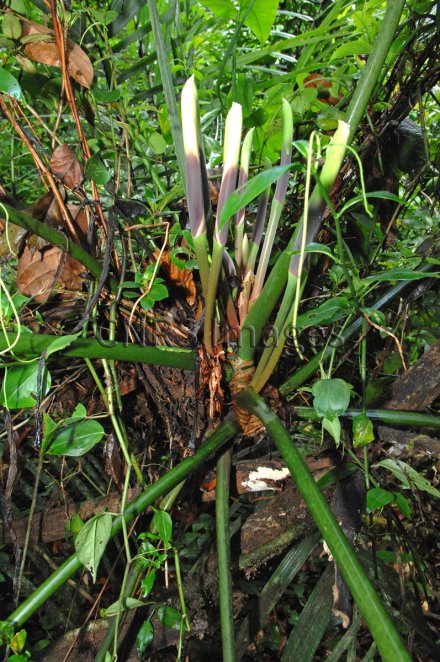Production year
2009

© Claude DELHAYE/CNRS Images
20090001_1583
"Jardin de fourmis" avec des inflorescences de "Peperomia macrostachya" et également "Philodendron deflexum" ("Araceae"). Les fourmis récoltent les graines et les plantent dans leur nid, en se développant, les plantes forment un jardin suspendu appelé "jardin de fourmis". Ce jardin est dans un chablis et il est habité par deux espèces de fourmis "Camponotus femoratus" et "Crematogaster levior" qui vivent en parabiose : association particulière entre deux espèces de fourmis qui cohabitent pacifiquement et se partagent le nid en élevant cependant leur couvain séparément. Station des Nouragues, Guyane.
The use of media visible on the CNRS Images Platform can be granted on request. Any reproduction or representation is forbidden without prior authorization from CNRS Images (except for resources under Creative Commons license).
No modification of an image may be made without the prior consent of CNRS Images.
No use of an image for advertising purposes or distribution to a third party may be made without the prior agreement of CNRS Images.
For more information, please consult our general conditions
2009
Our work is guided by the way scientists question the world around them and we translate their research into images to help people to understand the world better and to awaken their curiosity and wonderment.